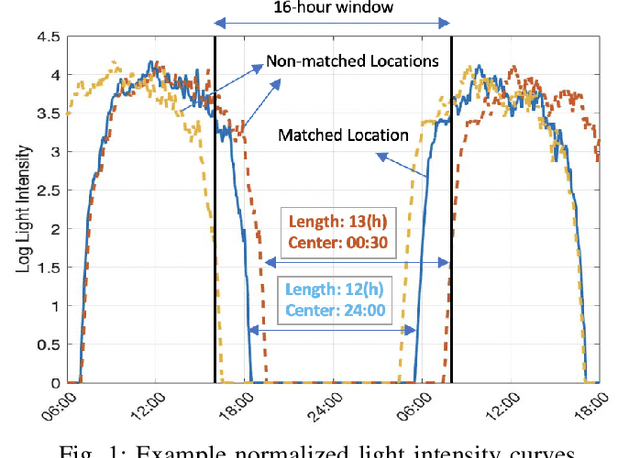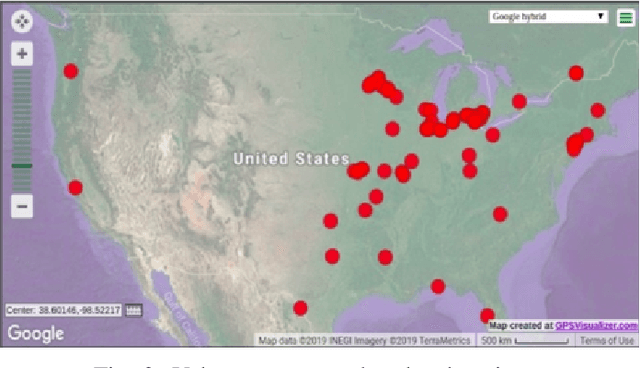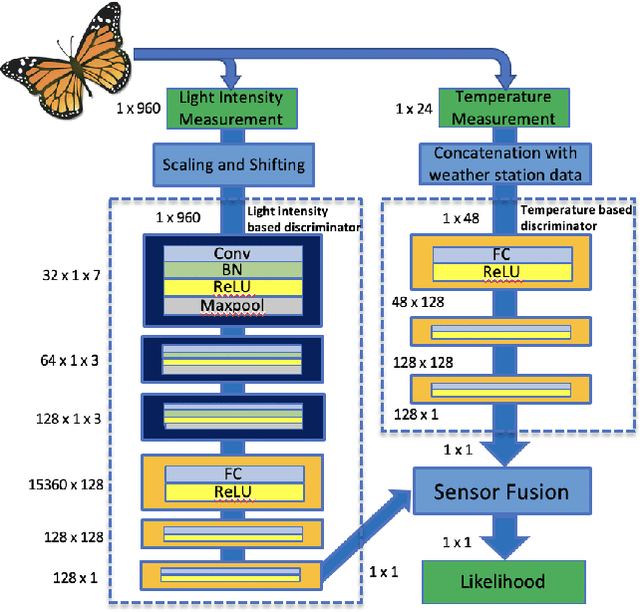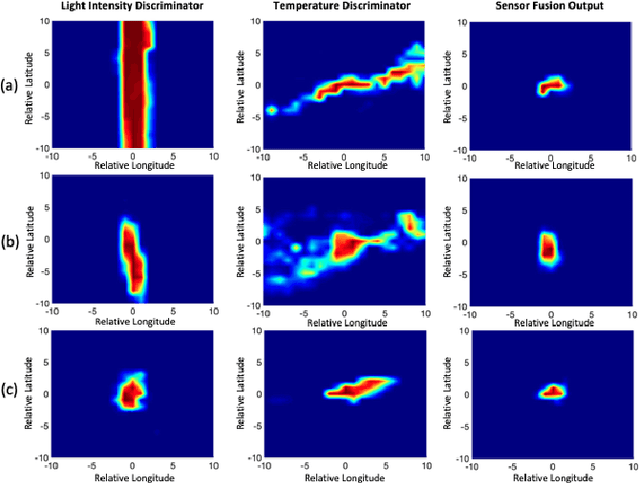Delbert A. Green II
Siamese Learning-based Monarch Butterfly Localization
Jul 04, 2023



Abstract:A new GPS-less, daily localization method is proposed with deep learning sensor fusion that uses daylight intensity and temperature sensor data for Monarch butterfly tracking. Prior methods suffer from the location-independent day length during the equinox, resulting in high localization errors around that date. This work proposes a new Siamese learning-based localization model that improves the accuracy and reduces the bias of daily Monarch butterfly localization using light and temperature measurements. To train and test the proposed algorithm, we use $5658$ daily measurement records collected through a data measurement campaign involving 306 volunteers across the U.S., Canada, and Mexico from 2018 to 2020. This model achieves a mean absolute error of $1.416^\circ$ in latitude and $0.393^\circ$ in longitude coordinates outperforming the prior method.
Migrating Monarch Butterfly Localization Using Multi-Sensor Fusion Neural Networks
Dec 14, 2019



Abstract:Details of Monarch butterfly migration from the U.S. to Mexico remain a mystery due to lack of a proper localization technology to accurately localize and track butterfly migration. In this paper, we propose a deep learning based butterfly localization algorithm that can estimate a butterfly's daily location by analyzing a light and temperature sensor data log continuously obtained from an ultra-low power, mm-scale sensor attached to the butterfly. To train and test the proposed neural network based multi-sensor fusion localization algorithm, we collected over 1500 days of real world sensor measurement data with 82 volunteers all over the U.S. The proposed algorithm exhibits a mean absolute error of <1.5 degree in latitude and <0.5 degree in longitude Earth coordinate, satisfying our target goal for the Monarch butterfly migration study.
 Add to Chrome
Add to Chrome Add to Firefox
Add to Firefox Add to Edge
Add to Edge